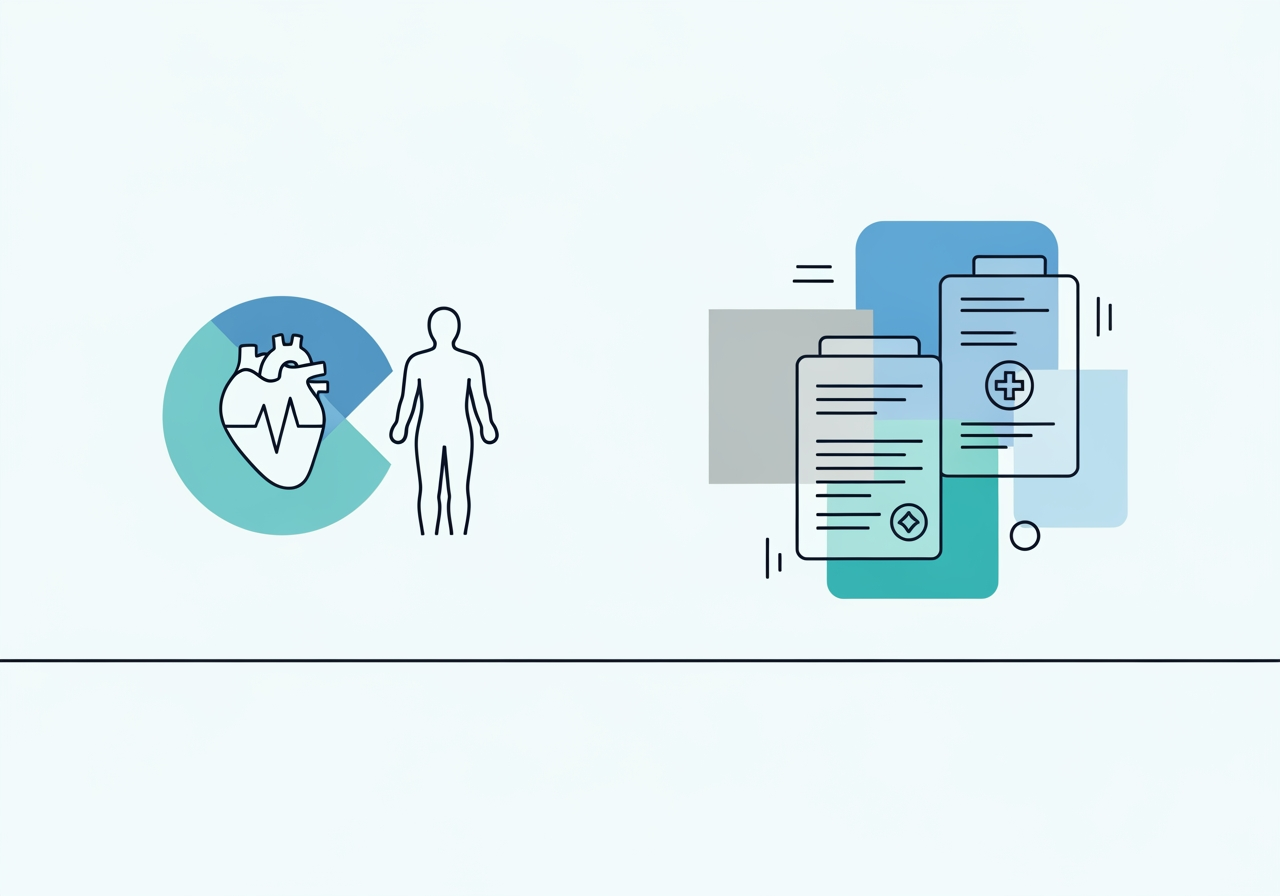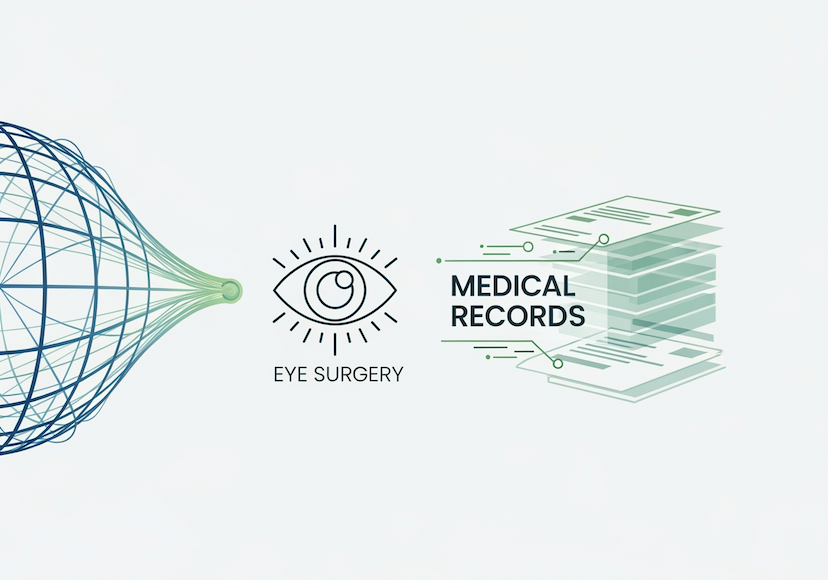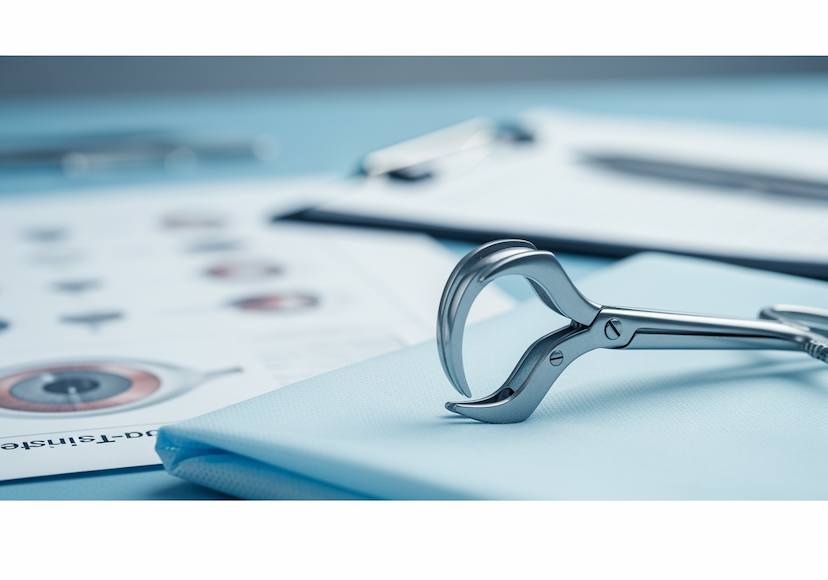
Top Pre-Surgery Tests Required for Plastic Surgery
16 Nov, 2025
 Healthtrip
Healthtrip- Why Are Pre-Surgery Tests Essential for Plastic Surgery?
- Overview of Common Pre-Surgery Tests: What to Expect
- Who Needs Pre-Surgery Tests? Determining Patient Risk Factors
- Where Can You Get Pre-Surgery Tests? Hospital Options and Locations:Saudi German Hospital Alexandria, Egypt,NMC Specialty Hospital, Al Nahda, Dubai,Yanhee International Hospital,Vejthani Hospital
- How to Prepare for Pre-Surgery Tests: A Step-by-Step Guide
- Examples of Tests and interpreting the Results: Ensuring a Safe Surgical Outcome
- Conclusion: Prioritizing Safety and Optimal Results Through Pre-Surgery Testing
Complete Blood Count (CBC)
A complete blood count, or CBC, is one of the first and most important tests your doctor will order before any surgery. It’s like a detailed snapshot of your blood, providing valuable information about the different types of cells circulating in your body. This simple blood test measures red blood cells, white blood cells, and platelets. Red blood cells carry oxygen throughout your body, so your surgeon needs to know if you’re anemic, which could affect healing. White blood cells are your body's defense force, and an elevated count might indicate an infection that needs to be addressed before surgery. Platelets are crucial for blood clotting; too few can lead to excessive bleeding, while too many can increase the risk of blood clots. This vital information allows your surgical team at hospitals like Yanhee International Hospital or Fortis Memorial Research Institute, Gurgaon to proactively manage any potential complications, ensuring the safest possible outcome for your plastic surgery. A CBC helps ensure that your body is in optimal condition to handle the procedure and recover effectively. We at Healthtrip understand that having this information brings peace of mind to our patients, and we give paramount importance to our patients well being and safety.
Most popular procedures in India
Comprehensive Metabolic Panel (CMP)
The Comprehensive Metabolic Panel (CMP) is another vital pre-surgery test that offers a more in-depth look at your body's chemical balance and organ function. It's like checking the engine of a car before a long journey, ensuring everything is running smoothly. This blood test assesses your kidney and liver function, electrolyte balance, and blood sugar levels. Kidney and liver function are particularly crucial because these organs play a significant role in processing medications and eliminating toxins from your body post-surgery. Electrolyte imbalances can affect heart function and muscle contractions, which are important to monitor during and after the procedure. Blood sugar levels are especially critical for patients with diabetes, as uncontrolled blood sugar can impair healing and increase the risk of infection. The CMP is routinely performed at hospitals like Saudi German Hospital Cairo and Bangkok Hospital which partner with Healthtrip, so the surgeons can evaluate your overall metabolic health, identify any potential issues, and optimize your condition before the surgery. This proactive approach minimizes risks and ensures your body can handle the stress of the procedure and recovery effectively. It is useful in optimizing your plan for before and after surgery in consultation with the surgeons and medical experts with Healthtrip.
Coagulation Studies
Coagulation studies are a series of blood tests designed to assess your blood’s ability to clot properly. These tests are essential before plastic surgery because they help identify any potential bleeding disorders that could lead to complications during or after the procedure. Think of it as checking the brakes on a car before hitting the road. The most common coagulation tests include prothrombin time (PT), partial thromboplastin time (PTT), and international normalized ratio (INR). PT and PTT measure how long it takes for your blood to clot, while INR standardizes the results, especially for patients taking blood-thinning medications like warfarin. If these tests reveal any abnormalities, such as prolonged clotting times, your surgeon at facilities such as Memorial Bahçelievler Hospital or Quironsalud Hospital Murcia can take steps to correct the issue before surgery. This might involve adjusting medications, administering vitamin K, or taking other measures to improve blood clotting. Ensuring your blood clots properly minimizes the risk of excessive bleeding and the need for blood transfusions, contributing to a safer and smoother surgical experience. Working with Healthtrip will allow you to consult with the experts to know more about these steps and make more informed decisions, ensuring that you are well taken care of.
Wellness Treatments
Give yourself the time to relax
Lowest Prices Guaranteed!

Lowest Prices Guaranteed!
Electrocardiogram (ECG or EKG)
An electrocardiogram, commonly known as an ECG or EKG, is a non-invasive test that records the electrical activity of your heart. It’s like getting a snapshot of your heart’s rhythm and function. This test is particularly important for patients with a history of heart problems, high blood pressure, or other cardiovascular risk factors. The ECG can detect irregular heartbeats (arrhythmias), signs of heart damage, or other abnormalities that could increase the risk of complications during surgery. The ECG involves placing small, painless electrodes on your chest, arms, and legs to record the electrical signals produced by your heart. The test usually takes just a few minutes and provides valuable information about your heart’s health. If the ECG reveals any concerns, your surgeon at hospitals like Fortis Escorts Heart Institute or LIV Hospital, Istanbul can consult with a cardiologist to optimize your heart condition before the procedure. This might involve adjusting medications, undergoing further testing, or taking other measures to minimize the risk of cardiac events during and after surgery. A healthy heart is essential for a safe and successful surgery, and with Healthtrip, you can get expert opinions and take actions regarding your health with ease.
Chest X-Ray
A chest X-ray is a quick and painless imaging test that provides a picture of your lungs, heart, and major blood vessels in your chest. It's like taking a peek under the hood to ensure everything is in good working order. This test is often performed before plastic surgery to identify any underlying lung conditions, such as pneumonia, bronchitis, or emphysema, that could increase the risk of respiratory complications during or after the procedure. The chest X-ray can also detect signs of heart enlargement or other abnormalities that might affect your ability to tolerate anesthesia and surgery. During the test, you’ll stand in front of an X-ray machine while a small dose of radiation passes through your chest. The image is captured on a digital detector or film, providing your doctor with a clear view of your chest cavity. If the chest X-ray reveals any concerns, your surgeon at facilities like NMC Specialty Hospital, Al Nahda, Dubai or Helios Klinikum Erfurt can take steps to address the issue before surgery. This might involve treating an infection, managing a chronic lung condition, or consulting with a pulmonologist to optimize your respiratory health. With Healthtrip, you can ensure that you are collaborating with experts from all medical fields to prioritize your health the most.
Why Are Pre-Surgery Tests Essential for Plastic Surgery?
Embarking on a plastic surgery journey is a significant decision, filled with anticipation and hope for a desired outcome. However, amidst the excitement, it's crucial to understand the vital role pre-surgery tests play in ensuring a safe and successful procedure. Think of these tests as a comprehensive health check, a detailed roadmap that guides your surgeon, equipping them with the necessary information to navigate your surgery with precision and care. These aren't just routine procedures; they're tailored assessments designed to uncover any underlying health issues that might increase the risk of complications during or after the surgery. Imagine building a house without a solid foundation – that's akin to undergoing surgery without understanding your body's current state. These tests help build that solid foundation, providing insights into your cardiovascular health, blood clotting abilities, liver and kidney function, and more. Healthtrip understands that peace of mind is paramount when considering plastic surgery, and we advocate for comprehensive pre-operative assessments at reputable facilities like Saudi German Hospital Cairo, Egypt, to prioritize your safety and well-being above all else. The aim is to minimize potential risks and ensure that you achieve the best possible results, allowing you to focus on the positive changes ahead with confidence.
Pre-surgery tests are also essential for customizing the surgical plan. Each individual's body responds differently to anesthesia and surgical procedures. These tests provide insights that allow the surgical team to tailor the anesthesia and surgical techniques to your specific needs, minimizing the potential for adverse reactions. For instance, if a blood test reveals a tendency for excessive bleeding, the surgeon can adjust their techniques and have the necessary medications on hand to manage the risk. Similarly, if an EKG indicates a heart condition, the anesthesiologist can closely monitor your heart function during the procedure and take steps to prevent complications. Furthermore, these tests play a crucial role in identifying potential drug interactions. It's essential to inform your doctor about all medications, supplements, and herbal remedies you're taking, as these can sometimes interact with anesthesia or other medications used during surgery. Pre-surgery tests can help identify these potential interactions, allowing your medical team to make necessary adjustments to your medication regimen. Healthtrip collaborates with hospitals that prioritize patient safety through personalized care, such as Yanhee International Hospital and Vejthani Hospital, both known for their thorough pre-operative assessments.
Beyond the immediate surgical period, pre-surgery tests contribute to your long-term health and well-being. By identifying underlying health conditions early on, these tests can pave the way for timely intervention and management. For example, if a blood test reveals elevated blood sugar levels, it could indicate pre-diabetes or diabetes, allowing you to make lifestyle changes or seek medical treatment to prevent the condition from worsening. Similarly, if a chest X-ray reveals an undiagnosed lung condition, you can seek appropriate treatment to improve your respiratory health. The information gleaned from these tests provides a holistic picture of your health, empowering you to make informed decisions about your overall well-being. Think of it as a proactive investment in your health, ensuring that you not only achieve your desired aesthetic outcome but also improve your overall quality of life. At Healthtrip, we believe that plastic surgery should be a positive and empowering experience, and we encourage our clients to choose facilities like NMC Specialty Hospital, Al Nahda, Dubai, which emphasize comprehensive pre-operative care to ensure the best possible outcomes and long-term health.
Overview of Common Pre-Surgery Tests: What to Expect
Preparing for plastic surgery can feel like navigating uncharted territory, but understanding the common pre-surgery tests can ease your anxieties and empower you to approach your procedure with confidence. These tests, carefully selected by your medical team, are designed to assess various aspects of your health, ensuring you're fit for surgery and minimizing potential risks. One of the most common pre-operative tests is a complete blood count (CBC), which provides a comprehensive overview of your blood cells. This test measures the number of red blood cells, white blood cells, and platelets, helping to detect anemia, infections, or bleeding disorders. An abnormal CBC result may indicate the need for further investigation or treatment before surgery. Another essential test is a basic metabolic panel (BMP), which measures various chemicals in your blood, providing insights into your kidney function, blood sugar levels, and electrolyte balance. This test can help identify conditions such as diabetes, kidney disease, or dehydration, which could affect your surgical outcome. At Healthtrip, we understand the importance of clear communication and transparency, and we encourage you to discuss any concerns or questions you have about pre-surgery tests with your medical team. Facilities like Saudi German Hospital Alexandria, Egypt, offer comprehensive pre-operative consultations to address your concerns and ensure you're fully informed about the testing process.
In addition to blood tests, an electrocardiogram (EKG) is often performed to assess your heart's electrical activity. This test can detect irregular heart rhythms, heart disease, or other heart-related problems. An EKG is particularly important for patients with a history of heart conditions or those undergoing major surgery. A chest X-ray may also be required to evaluate your lungs and heart. This imaging test can help detect lung infections, heart enlargement, or other abnormalities that could affect your ability to tolerate anesthesia or surgery. For patients undergoing breast augmentation or reduction, a mammogram may be recommended to screen for breast cancer. Furthermore, depending on your age, medical history, and the type of surgery you're undergoing, your doctor may order additional tests, such as a coagulation panel to assess your blood clotting ability, a liver function test to evaluate your liver health, or a urine analysis to detect infections or kidney problems. Remember, the specific tests you need will vary depending on your individual circumstances. Healthtrip partners with hospitals that utilize advanced diagnostic technology and experienced medical professionals, such as Yanhee International Hospital and Vejthani Hospital, ensuring accurate and reliable test results.
Knowing what to expect during these tests can also help alleviate anxiety. Most blood tests involve a simple blood draw from a vein in your arm, which usually takes only a few minutes. An EKG is a non-invasive procedure that involves placing electrodes on your chest, arms, and legs to record your heart's electrical activity. A chest X-ray is also a quick and painless procedure that involves standing in front of an X-ray machine for a few seconds. It's important to follow your doctor's instructions regarding fasting or medication restrictions before your tests. Typically, you may be asked to fast for 8-12 hours before blood tests to ensure accurate results. Be sure to inform your doctor about all medications, supplements, and herbal remedies you're taking, as these can sometimes interfere with test results. Once your tests are complete, your doctor will review the results and discuss them with you, explaining any abnormalities and their potential impact on your surgery. Healthtrip advocates for patient-centered care, ensuring that you receive clear and understandable explanations of your test results and a personalized surgical plan tailored to your individual needs. Consider facilities like NMC Specialty Hospital, Al Nahda, Dubai, for comprehensive pre-operative evaluations and expert guidance throughout your plastic surgery journey.
Who Needs Pre-Surgery Tests? Determining Patient Risk Factors
The need for pre-surgery tests isn't a one-size-fits-all scenario. Instead, it's a decision carefully tailored to each individual based on their unique health profile, the type of surgery they're undergoing, and several other factors. Think of it as a personalized risk assessment, where your medical team meticulously evaluates your health history and current condition to determine the appropriate level of testing. Generally, anyone undergoing a surgical procedure, whether it's a minor cosmetic enhancement or a more complex reconstructive surgery, will likely require some form of pre-operative testing. However, the extent and type of testing will vary depending on individual risk factors. Older patients, for example, often require more extensive testing due to the increased prevalence of age-related health conditions such as heart disease, diabetes, and kidney problems. These conditions can increase the risk of complications during and after surgery, making thorough pre-operative assessment crucial. Healthtrip recognizes the importance of personalized care and advocates for comprehensive evaluations at reputable facilities like Saudi German Hospital Cairo, Egypt, ensuring that all patients receive the appropriate level of testing based on their individual needs.
Patients with pre-existing medical conditions, such as heart disease, lung disease, diabetes, or high blood pressure, also require more extensive pre-operative testing. These conditions can significantly increase the risk of surgical complications, and pre-operative tests can help identify and manage these risks. For example, patients with heart disease may need an EKG or echocardiogram to assess their heart function, while patients with lung disease may need a chest X-ray or pulmonary function tests. Similarly, patients with diabetes may need blood sugar tests to ensure their blood sugar levels are well-controlled before surgery. The type of surgery being performed also plays a significant role in determining the need for pre-operative testing. Major surgeries, such as those involving the heart, lungs, or abdomen, typically require more extensive testing than minor procedures. This is because major surgeries carry a higher risk of complications, and thorough pre-operative assessment can help minimize these risks. Healthtrip collaborates with hospitals that prioritize patient safety through individualized risk assessments, such as Yanhee International Hospital and Vejthani Hospital, both known for their comprehensive pre-operative protocols.
Lifestyle factors, such as smoking, alcohol consumption, and obesity, can also influence the need for pre-operative testing. Smokers, for instance, are at increased risk of lung complications after surgery and may require a chest X-ray or pulmonary function tests. Similarly, patients who consume excessive amounts of alcohol may be at increased risk of liver problems and may require liver function tests. Obese patients are also at increased risk of surgical complications and may require additional testing to assess their cardiovascular health and lung function. It's essential to be honest and transparent with your doctor about your lifestyle habits, as this information can help them determine the appropriate level of testing. Remember, pre-surgery tests are not meant to be intrusive or burdensome; they are designed to protect your health and well-being. By identifying potential risks early on, these tests can help ensure a safe and successful surgical outcome, allowing you to focus on the positive changes ahead. Healthtrip encourages our clients to choose facilities like NMC Specialty Hospital, Al Nahda, Dubai, which emphasize comprehensive pre-operative care and personalized risk assessments to ensure the best possible outcomes.
Also Read:
Where Can You Get Pre-Surgery Tests? Hospital Options and Locations
Finding the right place to get your pre-surgery tests is a crucial step in ensuring a smooth and safe journey to your desired cosmetic outcome. Healthtrip understands that patients often travel for plastic surgery, seeking the best care in destinations known for their expertise and affordability. When choosing a location, consider factors like the hospital's reputation, the availability of advanced diagnostic equipment, and the convenience of coordinating tests with your surgeon. Several hospitals across the globe are well-equipped to handle pre-operative assessments efficiently. For example, in Egypt, Saudi German Hospital Alexandria offers comprehensive pre-surgical screening. Similarly, in the UAE, NMC Specialty Hospital, Al Nahda, Dubai, provides a range of diagnostic services to ensure patient safety. In Thailand, both Yanhee International Hospital and Vejthani Hospital are popular choices, known for their state-of-the-art facilities and experienced medical staff. When booking through Healthtrip, our care managers can assist you in navigating these options, ensuring you select a facility that aligns with your specific needs and procedural requirements.
Hospital Options: A Global Perspective
When considering locations for your pre-surgery tests, it’s important to remember that Healthtrip partners with a vast network of hospitals worldwide, each offering unique advantages. In Germany, hospitals like Helios Klinikum Erfurt and Helios Emil von Behring are known for their rigorous standards and advanced medical technology. In Turkey, both Memorial Bahçelievler Hospital and Memorial Sisli Hospital offer comprehensive pre-operative assessments, often attracting medical tourists due to their expertise and affordability. Spain also boasts excellent facilities like Jiménez Díaz Foundation University Hospital and Quironsalud Hospital Murcia, providing thorough medical evaluations. Consider these options in conjunction with the reputation and specialization of your chosen surgeon. Healthtrip can help you coordinate appointments and logistics, regardless of whether you're staying local or traveling internationally for your plastic surgery.
How to Prepare for Pre-Surgery Tests: A Step-by-Step Guide
Preparing for pre-surgery tests is essential to ensure accurate results and a seamless experience. First and foremost, follow any specific instructions given by your doctor or the testing facility. These instructions can vary depending on the type of tests you'll be undergoing. Generally, you may need to fast for a certain period before blood tests, typically 8-12 hours. This means no food or beverages, except water, during the fasting period. If you're taking any medications, inform your doctor, as some medications may need to be temporarily adjusted or stopped before the tests. Wear comfortable, loose-fitting clothing to the appointment, as you may need to change into a hospital gown for certain tests. Bring your identification, insurance information, and any referral forms provided by your surgeon. If you have any questions or concerns about the tests, don't hesitate to ask your doctor or the testing facility staff for clarification. Remember, being well-prepared not only ensures accurate results but also alleviates anxiety and contributes to a smoother overall experience. Healthtrip can also provide you with a checklist to ensure all pre-operative steps are completed!
Detailed Steps to Take Before Your Tests
Beyond the general guidelines, there are more detailed steps to consider. Ensure you get a good night's sleep before your tests, as sleep deprivation can affect certain blood test results. Avoid strenuous exercise for at least 24 hours before your appointment, as it can also alter some test outcomes. If you're a smoker, it's advisable to refrain from smoking before your tests, as nicotine can impact cardiovascular function and blood pressure. On the day of the tests, arrive on time and be prepared to provide a detailed medical history to the healthcare provider. This includes any allergies, previous surgeries, and current health conditions. If you're having imaging tests, such as an X-ray or MRI, inform the technician if you're pregnant or suspect you might be. Following these steps meticulously will help ensure that your pre-surgery tests provide the most accurate and reliable information, contributing to a safer and more successful surgical outcome. Healthtrip can help you schedule these around your travel plans, making the process less stressful.
Examples of Tests and interpreting the Results: Ensuring a Safe Surgical Outcome
Understanding the purpose of various pre-surgery tests and how to interpret the results can empower you to be an active participant in your healthcare journey. Common tests include a Complete Blood Count (CBC), which assesses the levels of red blood cells, white blood cells, and platelets. Abnormal results can indicate infection, anemia, or bleeding disorders, which may need to be addressed before surgery. A basic metabolic panel (BMP) measures electrolytes, kidney function, and blood sugar levels. These results help identify any underlying metabolic imbalances or kidney issues that could affect anesthesia or recovery. A coagulation panel, including prothrombin time (PT) and partial thromboplastin time (PTT), evaluates your blood's ability to clot. Abnormal results can indicate a risk of excessive bleeding during or after surgery. An electrocardiogram (ECG) records the electrical activity of your heart, detecting any arrhythmias or heart conditions that may require further evaluation. Finally, a chest X-ray can identify lung problems or heart enlargement. While detailed interpretation should always be done by your doctor, understanding the basics can help you engage in informed discussions and take proactive steps toward optimal health. Healthtrip ensures that all test results are communicated effectively between you and your surgeon.
Deciphering Your Results: What to Look For
While only a qualified medical professional can provide a definitive interpretation of your pre-surgery test results, being aware of the general ranges and potential implications can be beneficial. For instance, a normal red blood cell count typically falls within a specific range, and deviations could suggest anemia or other blood disorders. Similarly, electrolyte levels, such as sodium and potassium, should be within defined limits, and imbalances can affect heart and muscle function. Blood sugar levels outside the normal range could indicate diabetes or pre-diabetes, requiring management before surgery. It's important to remember that these are just examples, and the specific reference ranges can vary slightly depending on the laboratory and the individual's medical history. Don't self-diagnose or make treatment decisions based solely on your understanding of the results. Instead, use this knowledge to ask informed questions and engage in meaningful conversations with your doctor. Healthtrip’s patient support team can assist you in understanding the potential implications of these tests and connecting you with medical professionals who can provide expert guidance.
Also Read:
Conclusion: Prioritizing Safety and Optimal Results Through Pre-Surgery Testing
Pre-surgery testing is not merely a formality—it's a cornerstone of responsible and effective plastic surgery. By undergoing these essential evaluations, you and your surgical team gain invaluable insights into your overall health, potential risks, and the best course of action for a safe and successful procedure. Think of pre-surgery tests as a comprehensive health check, ensuring that your body is well-prepared for the demands of surgery and recovery. These tests help identify any underlying conditions that could complicate the procedure or affect your body's ability to heal. They also allow your surgeon to tailor the anesthesia and surgical techniques to your specific needs, maximizing safety and minimizing potential complications. Ultimately, prioritizing pre-surgery testing demonstrates a commitment to your well-being and a dedication to achieving the best possible results. Healthtrip is here to support you every step of the way, providing access to world-class medical facilities and experienced healthcare professionals who understand the importance of thorough pre-operative assessments. Trust the process, embrace the knowledge gained, and embark on your plastic surgery journey with confidence and peace of mind.
Related Blogs

Common Myths About Eye Surgery Doctors Bust Them
Explore evaluations, innovations, hospital comparisons, and global success insights for

How Healthtrip Coordinates Cross-Border Medical Records for Eye Surgery
Explore evaluations, innovations, hospital comparisons, and global success insights for

Top Pre-Surgery Tests Required for Eye Surgery
Explore evaluations, innovations, hospital comparisons, and global success insights for

Why India Leads in Affordable Eye Surgery Analysis
Explore evaluations, innovations, hospital comparisons, and global success insights for

Patient Satisfaction Scores for Eye Surgery at Healthtrip Partner Hospitals
Explore evaluations, innovations, hospital comparisons, and global success insights for

How to Choose the Right Hospital for Eye Surgery Using Healthtrip's Criteria
Explore evaluations, innovations, hospital comparisons, and global success insights for










